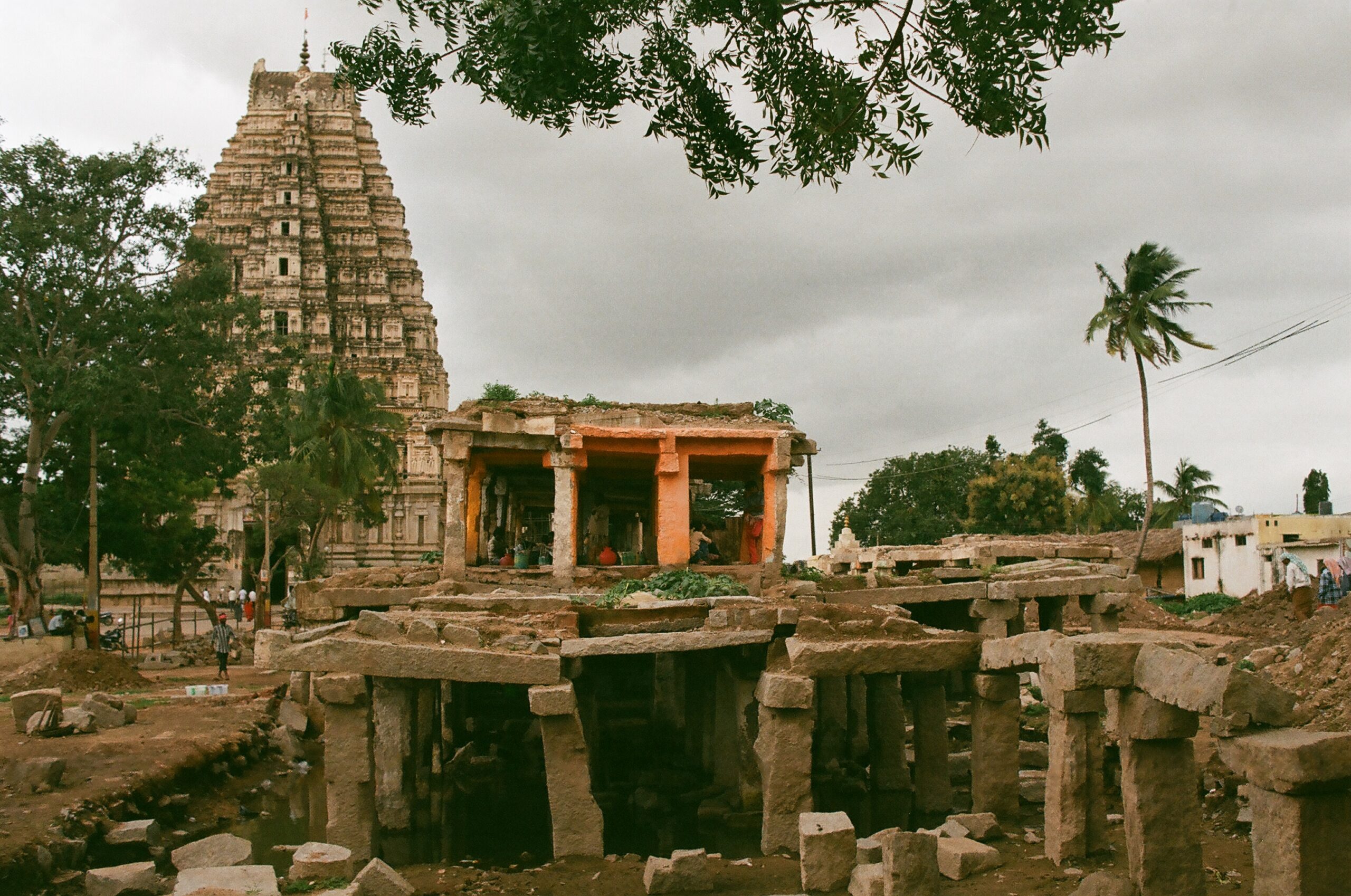“The birth of tourism and the death of a village”
August 28Pilgrims and the farming community helped create a busy bazaar around a historic temple, but a heritage designation spelled the end of that commerce. Pak Yiu, 19, a Commonwealth Correspondent from Brisbane, Australia, wonders about the fate of the adjacent village of Hampi.
The Virupaksha temple has long existed next to the village and recent ruins of the Hampi Bazaar, and in its present day bells still chime to call Hindu worshipers.
Inside the temple, pilgrims and locals offer coconuts or rupees for Lakshmi, the temple elephant who blesses you with the touch of her trunk on your head.
For more than 100 years, the temple attracted pilgrims and hippies from all around Karnataka. From there the village expanded and Hampi came to life.
The vibrant bazaar disappeared two years ago after the Indian government gave families less than 24 hours to evacuate before knocking it all down. Some people pitched tents kilometres away from Hampi, while others had nothing and took to the streets.
According to the Archaeological Survey of India (ASI) and Hampi World Heritage Area Management Authority (HWHAMA), businesses, restaurants or a simple Internet cafe should not be allowed on the protected area of the World Heritage Site.
Today, much of the bazaar has been knocked down. Although some of the pillars remain upright, little else remains.
Dewaka, Hampi’s local Dhobi, remains at her work in the same spot she has occupied for 50 years. Only there is no shop, just rubble. “I am very upset and disappointed,” she tells me as she lifts her heavy iron, heated by the burning wood inside.
Dewaka starts her day at 8am, ironing villager’s clothes. After she has lunch she exchanges clean clothes for the dirty and washes them in a nearby river. She continues to works into the night with the help of the moonlight.
I ask her about the future, and she smiles and says she will do what she can.
“I will continue to work here and look after the village’s clothes, and in turn my son will take over.”
Little was given to families to compensate for the destruction of their homes. Now the colourful village next to the remains faces a similar fate. Families and businesses are all unclear about what lies ahead of them. Guest houses, restaurants and Internet cafes will all disappear in another two years, says local tour guide Chandra Suriea.
“The Indian government plans to knock down all these buildings,” he says, pointing to a restaurant poplar amongst both locals and tourists. “We will all have to relocate three kilometres away from here.”
The current village will fall to pieces, leaving nothing but a construction site and a dead temple.
We walk down the dirt road, carefully avoiding the giant puddles of mud and the occasional cow. “They have plans to build a foot path from the village here to the Vittala Temple and want tourists to enjoy a leisurely walk by the river, lit by lanterns,” Mr. Suriea tells me.
The HWHAMA submitted a statement to the Karnataka High Court that alternate sites for families are available, and that it plans to develop an area for construction of a shopping area.
Locals have voiced their anger. Many say these new plans will create problems for the tourism industry, while some have accepted their fate.
But Mr. Suriea is uncertain when these plans will become a reality. “There is not much action from the Government, it is all talk,” he says.
Only time will tell what will be in store for Hampi locals.
Photo: Pak Wayne Yiu
………………………………………………………………………………………………………………………………………………………………
About Me
I’m a student based in Brisbane, Australia, studying Journalism and Arts majoring in Spanish and Psychology. I’m a photo enthusiast and an adventurer consumed by wanderlust. My dream is to be able to travel around the world to capture different cultures and re-tell their stories through photos.
I’m also a radio announcer on a news and current affair show called Brisbane Line at 4zzz. I enjoy playing and listening to independent local bands from all over the country as well as unearthing hidden talent around the world. I hope one day I’ll to be a journalist and publish current issues that the world will face.
………………………………………………………………………………………………………………………………………………………………
Opinions expressed in this article are those of the author and do not necessarily represent the views of the Commonwealth Youth Programme. Articles are published in a spirit of dialogue, respect and understanding. If you disagree, why not submit a response?
To learn more about becoming a Commonwealth Correspondent please visit: http://www.yourcommonwealth.org/submit-articles/commonwealthcorrespondents/
………………………………………………………………………………………………………………………………………………………………





